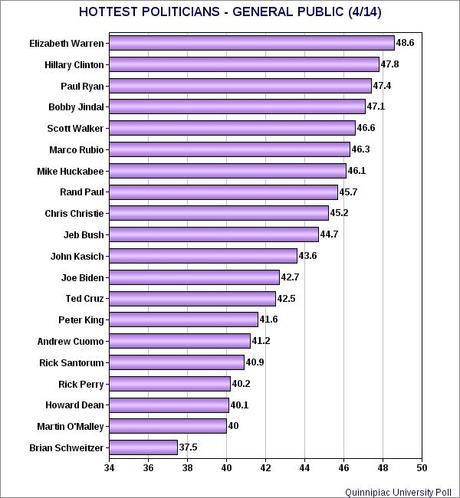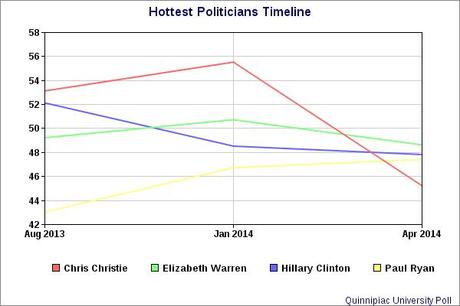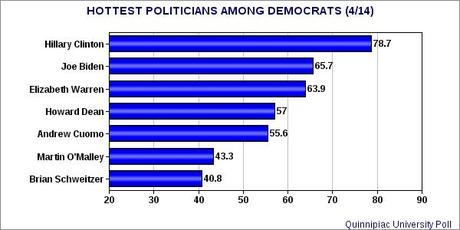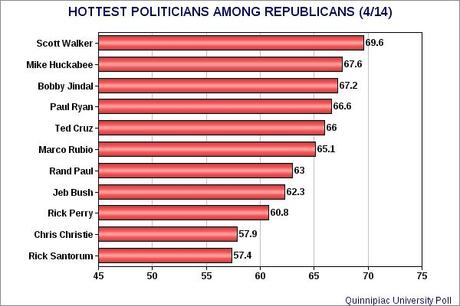

I thought this survey, done of 1,578 registered voters between March 26th and 31st, by the Quinnipiac University Poll was rather interesting. They didn't ask those voters who they support, or even who they might vote for in an election. Instead, they asked them to assign a number to each politician from 1 to 100 (with o being the most negative and 100 being the most positive). If a voter was not familiar with a politician, they were asked to give no number for that person. Then all the numbers were averaged (giving the results shown in the top chart above).
Quinnipiac said the politicians with the highest numbers were those with the most positive feelings from voters -- and were the "hottest" politicians right now. I think the politician with the highest average score, and therefore the "hottest" politician, will probably surprise a lot of people. It was Senator Elizabeth Warren (D-Massachusetts).
Now don't misunderstand this result. It does not mean that Warren is going to march into the White House in 2016. Remember, this is the feelings only of those who are familiar with her -- and only 56% of the voters were familiar enough with her to give a number, while 99% were familiar enough with Hillary Clinton (who finished in second) to give a number. However, it does mean that Warren could be a player on the national scene in some future election, as more people get to know her.
Perhaps most interesting is the fall of New Jersey Governor Chris Christie. As the second chart above shows, Christie was the hottest politician the last two times Quinnipiac asked voters to do this. But after the George Washington Bridge scandal, he has cooled off considerably -- falling all the way down to ninth place.
The results above are from the general public. When only the members of each party are queried, the numbers are quite different. Hillary Clinton is easily the hottest politician among Democrats -- and surprisingly, Wisconsin Governor Scott Walker is the hottest politician among Republicans (meaning he may be a stronger contender for the 2016 GOP nomination than many people think).
Here are the charts where only Democrats or Republicans were questioned:



